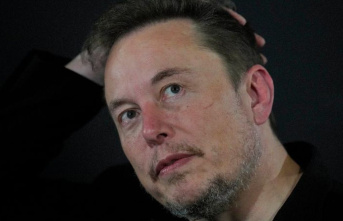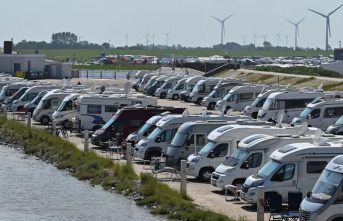Sergei Ryabkov, Russian Deputy Foreign Minister, arrived in Geneva under Swiss police. He was escorted to the U.S. diplomatic missions in Geneva by her team. This meeting is part the "Strategic Security Dialogue" discussions on arms control and other broad topics launched by Presidents Joe Biden (and Vladimir Putin) during a June summit held in Geneva.
Ryabkov, who had a casual working dinner on Sunday night, predicted that there would be "difficult talks" in Geneva. These talks will be followed by a NATO Russia meeting in Brussels on Wednesday and an OSC meeting in Vienna on Thursday.
Moscow sought to negotiate a series of concessions with the U.S., its Western allies, and includes guarantees that NATO will not expand eastward into ex-Soviet states like Ukraine. This is despite Russia having amassed around 100,000 troops along their border, raising concerns about an American military intervention.
AP-NORC poll: Inflation up and virus down are the top priorities in the US
Ned Price, a State Department spokesperson, said that Sherman "increased the United States’ commitment to the international principles sovereignty and territorial integrity and freedom of sovereign countries to choose their own allies" during Sunday's dinner. This was referring to Ukraine's aspirations to join NATO. Many analysts believe that such an accession will be difficult to achieve.
Price stated that Sherman "affirmed the United States would appreciate genuine progress through diplomacy."
The U.S. has lowered hopes of any significant progress this week, saying that some demands -- such as a possible halt in NATO expansion -- are against sovereign rights of countries to establish their own security arrangements and are therefore non-negotiable.
However, U.S. officials are open to exploring other options such as limiting future deployments offensive missiles to Ukraine and restricting NATO and American military exercises in Eastern Europe -- provided Russia does not back down on Ukraine.
On Sunday, U.S. Secretary Antony Blinken stated bluntly that he does not expect any breakthroughs to be made in the next week. He said that a deal to de-escalate tensions in short term would be a better outcome and that talks could resume at a suitable time in the future. For there to be any progress, the U.S. must see de-escalation.
"It's difficult to see that happening, when there's an continuing escalation. When Russia has a gun at the head of Ukraine, with 100,000 troops close to its borders, the possibility to doubling that in very short order," Blinken stated on ABC's "This Week."
NATO Secretary General Jens Stoltenberg tried to downplay expectations.
After talks with Olga Stefanishyna (Ukraine's deputy prime Minister for European and Euro-Atlantic Integration), he said that he didn't believe that the meetings would solve all issues. "What we hope for is that, we can agree upon a way forward. That we can agree to a series or meetings. That we can agree upon a process.
During a trip to Rome, the German Foreign Minister Annalena Bärbock spoke to reporters and said that dialogue was the only way out the crisis.
She stated, "At the exact same time, it is equally clear that a renewed breach by Russia of Ukrainian sovereignty would have grave consequences."
Russia has stated that it wants the issue solved this month. NATO is concerned that Putin may be seeking a pretext to launch an invasion, such as a negotiation failure.
Price stated Sunday that the United States, having stressed that Ukraine's government must be included in the discussions. They plan to discuss bilateral issues in Geneva, but will not discuss European security "without our European allies or partners."
According to the state news agency Tass, Russia came into the talks looking for a better understanding of the U.S. position. Ryabkov stated that Washington had given signals that some Russian proposals could be discussed.
He outlined Russia's three demands, including no NATO expansion and no missiles at Russia's borders. NATO should also cease having military exercises, intelligence operations, or infrastructure beyond 1997.
Ryabkov stated that the Russian side arrived with a clear position. It contained a number elements that I believe are understandable.
He was asked if Russia was open to compromise and he replied: "The Americans should be ready to reach an agreement."












